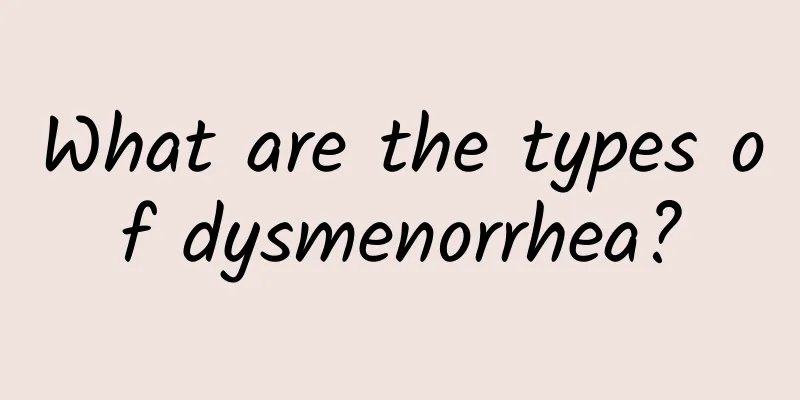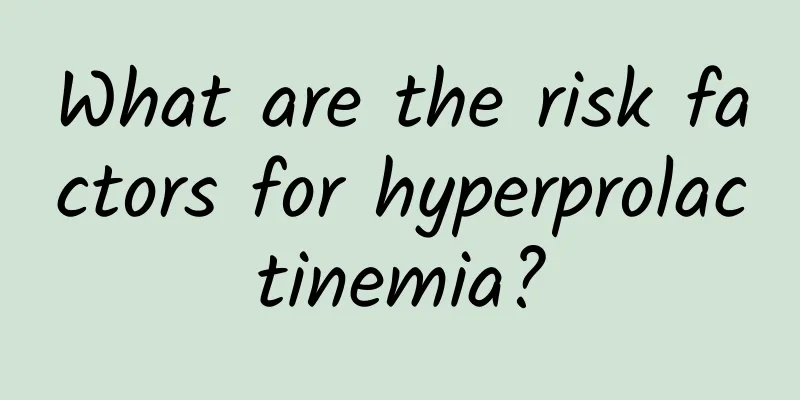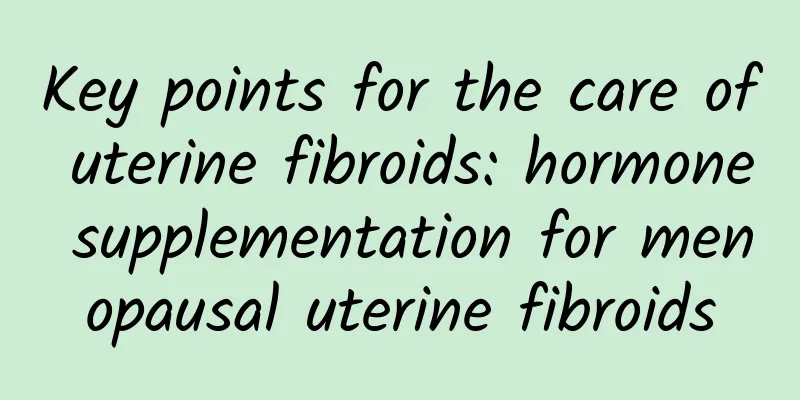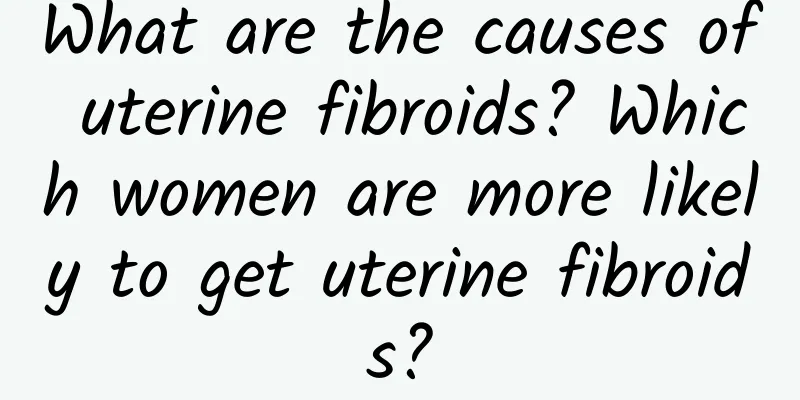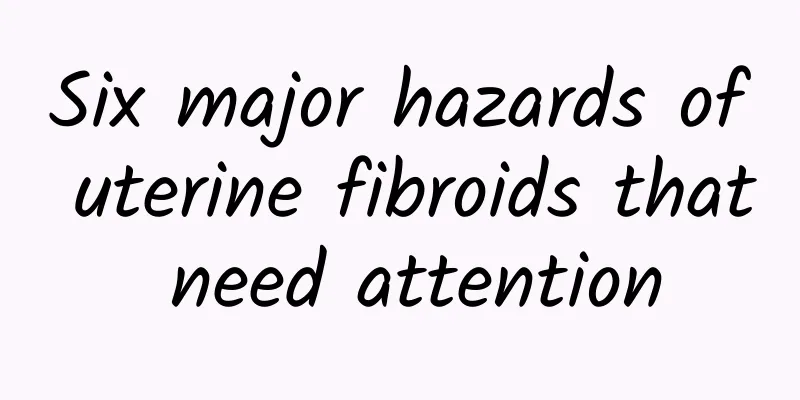What are the pathological characteristics of ovarian cysts and what should you eat after surgery?
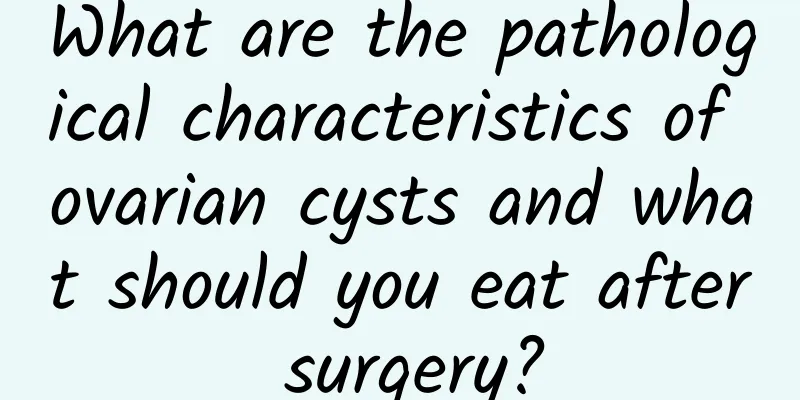
|
Sitting for a long time can easily lead to blood circulation disorders and ovarian cysts. In addition to paying attention to the characteristics of ovarian cysts themselves, you should also understand the overall situation. So, what are the pathological characteristics of ovarian cysts? What should you eat after surgery? As far as we know, the cause of ovarian cysts is multifactorial, including genetics, environment, hormones and viruses. Common pathological characteristics of ovarian cysts: 1. Common epithelial tumors: This type of tumor mostly originates from the coelomic epithelium on the surface of the ovary, accounting for about 2/3 of primary ovarian tumors and about 70% of all ovarian cancers. 1. Serous tumors: benign ones include serous cystadenoma, adenofibroma and cystic adenofibroma; serous borderline tumors; serous cystadenocarcinoma. 2. Mucinous tumors: mucinous cystadenoma; borderline mucinous cystadenoma; mucinous cystadenocarcinoma. 3. Endometrioid tumor: endometrioid tumor; endometrioid carcinoma. 4. Ovarian clear cell carcinoma. 5. Brenner's tumor: benign Brenner's tumor, hyperplastic Brenner's tumor, malignant Brenner's tumor. 2. Sex cord-stromal tumors: granulosa cell tumor; thecoma; fibroma, testicular blastoma. 3. Ovarian tumor-like lesions: follicular cysts; corpus luteum cysts; multiple luteinized follicular cysts; polycystic ovaries; ovarian endometriosis cysts. After surgery for ovarian cysts, attention should be paid to dietary care. The time for flatulence after laparoscopic surgery is shorter than that for patients undergoing abdominal surgery, and the intestinal motility function recovers faster. Eating can be allowed 4 to 6 hours after surgery. Liquid food can be given, with small and frequent meals, and gradually transition to normal food. Milk, sugar, and soy products are prohibited to prevent postoperative intestinal flatulence. After surgery, you should improve your diet and eat more fish, because fish is easier to digest and absorb. Of course, vegetables and fruits are indispensable, but not in excess. You must eat them on time and in the right amount. Vegetables and water are rich in minerals and vitamins, which can effectively improve women's own resistance and help wound healing. |
<<: Can ovarian cysts cause back pain? What are the common complications?
>>: What to do with adnexal cyst and pelvic effusion
Recommend
Common preventive measures for dysmenorrhea in life
Among the many diseases during menstruation, dysm...
What are the causes of pelvic inflammatory disease?
Pelvic inflammatory disease is a common gynecolog...
What are the causes of cervical erosion in women?
Among gynecological diseases, cervical erosion is...
Three dietary prescriptions for patients with functional uterine bleeding of different constitutions
Dysfunctional uterine bleeding is classified as &...
Is your body straight? Stretching 5 parts for "zero position training" to shape a beautiful body
Every part of the body is atrophied, so each part...
How to treat uterine effusion?
How to treat uterine effusion? This is probably a...
How will irregular menstruation manifest itself?
Menstruation is a sign of adulthood, but irregula...
This is what everyone should do to regulate irregular menstruation!
Early menstruation, delayed menstruation, heavy m...
How to conservatively treat ectopic pregnancy?
Ectopic pregnancy is a common gynecological disea...
How to improve the cure rate of abortion
Abortion is undoubtedly a huge blow to many femal...
Why is congenital absence of vagina difficult to cure?
For a woman, if she suffers from congenital vagin...
Refuse to "eat fat" after the New Year! Drink this fat-reducing tea before meals to prevent fat accumulation
According to the National Health Administration&#...
What should you eat after an abortion? What should you pay attention to after an abortion?
After an abortion, women must take good care of t...
What should I eat if I have cervical erosion?
Diet is very important for patients with cervical...
What are the symptoms of uterine fibroids? What are the manifestations of uterine fibroids?
Many women want to know what the symptoms of uter...
